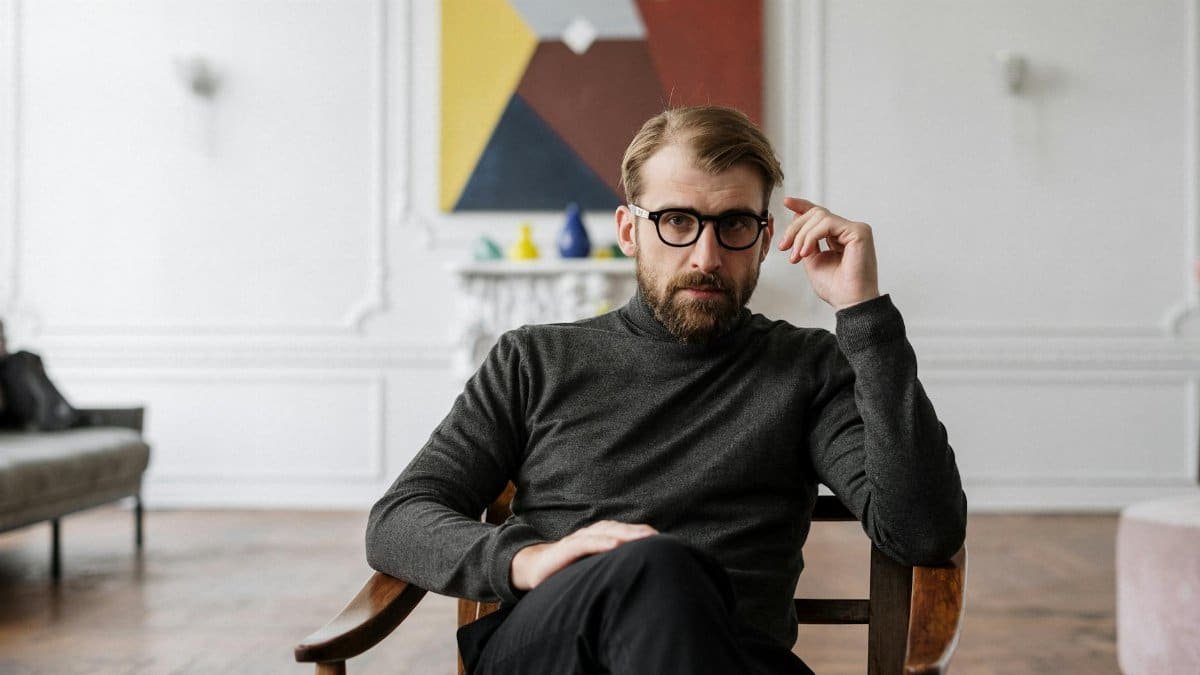Imagine a garage cluttered with tools, a lone dreamer sketching ideas late into the night. This isn’t just a romantic image—it’s where some of the world’s biggest companies were born. Passion projects, those endeavors fueled by personal obsession rather than profit, often start small. Yet, for a select few, they transform into billion-dollar empires. The phenomenon of passion projects billion brands isn’t new, but its allure remains powerful in 2025. What begins as a labor of love can reshape industries, proving that heartfelt ideas sometimes carry the most weight. From tech giants to lifestyle icons, these stories reveal a common thread: vision paired with grit. This article uncovers 14 remarkable examples of passion projects that defied the odds, evolving into global powerhouses while inspiring countless others to chase their own unlikely dreams.
1. Apple: A Tinkerer’s Vision

Steve Jobs and Steve Wozniak didn’t set out to build a trillion-dollar company. In the 1970s, they were just two friends messing around with circuit boards in a California garage. Their passion for creating accessible technology birthed the first Apple computer. Wozniak’s engineering genius met Jobs’ knack for design and marketing, turning a hobby into a revolution. By 2025, Apple’s influence spans beyond gadgets, shaping how we communicate and create. Their story shows how a personal obsession with innovation can redefine the world. It wasn’t about money at first—it was about making something that mattered.
2. Nike: Running Toward a Dream

Phil Knight was a runner with a simple frustration: poor-quality shoes. Together with coach Bill Bowerman, he started Blue Ribbon Sports in 1964, driven by a shared love for athletics. Their experiments, like pouring rubber into a waffle iron for better traction, were pure passion. Renamed Nike, the brand hit billion-dollar status by the 1980s. Today, it’s a cultural force, tied to grit and self-expression. A small idea, rooted in personal need, became a global symbol of perseverance.
3. Spanx: Solving a Personal Problem

Sara Blakely wasn’t a fashion mogul when she cut the feet off her pantyhose to create a smoother silhouette. In 2000, with just $5,000, she launched Spanx from her apartment, fueled by a desire for practical undergarments. Her persistence turned a quirky fix into a billion-dollar shapewear empire. Blakely’s journey underscores how passion projects billion brands often start with solving everyday annoyances. Her story resonates with anyone who’s ever thought, “There has to be a better way.”
4. Tesla: Electrifying a Mission

Elon Musk’s obsession with sustainable energy wasn’t just a business plan—it was a crusade. When he invested in Tesla in 2004, electric cars were a niche dream. Musk’s vision, paired with relentless innovation, transformed Tesla into a billion-dollar leader by the 2010s. In 2025, Tesla remains a benchmark for green tech. This wasn’t about quick profits; it was about changing how we move through the world. Passion, here, sparked a movement.
5. Patagonia: Protecting What Matters

Yvon Chouinard loved climbing, but hated the environmental damage caused by gear. In 1973, he founded Patagonia to create sustainable outdoor clothing. His commitment to the planet over profit turned a small venture into a billion-dollar brand. Patagonia’s activism, like donating profits to conservation, shows how values can drive success. Chouinard’s story is a reminder that passion projects billion brands can carry a deeper purpose.
6. GoPro: Capturing the Thrill

Nick Woodman wanted to film his surfing adventures. In 2002, he strapped cameras to his wrist, tinkering until GoPro was born. That personal need for rugged, wearable tech exploded into a billion-dollar action-camera market. GoPro’s rise reflects how a niche hobby can resonate with millions. Woodman’s early struggles—selling bead necklaces to fund his idea—highlight the raw determination behind many passion-driven brands.
7. Under Armour: Sweating the Details

Kevin Plank was a college football player tired of soggy, heavy shirts. In 1996, he created moisture-wicking gear in his grandmother’s basement. Under Armour became a billion-dollar athletic brand by focusing on performance over hype. Plank’s drive to improve something small—athlete comfort—built a giant. It’s a classic tale of spotting a gap through lived experience and filling it with grit.
8. Warby Parker: Seeing a Better Way

Four friends, frustrated by overpriced eyewear, launched Warby Parker in 2010. Their passion for affordable, stylish glasses—paired with a social mission—struck a chord. By cutting out middlemen and donating a pair for every sale, they hit billion-dollar status. Their story, rooted in a desire to disrupt a stale industry, shows how empathy can fuel innovation. A simple “why not?” idea became a vision correction revolution.
9. Ben & Jerry’s: Sweet Social Change

Ben Cohen and Jerry Greenfield started scooping ice cream in 1978 with a $12,000 investment. Their Vermont shop was less about profit and more about community and quirky flavors. Advocacy for social issues, baked into their brand, helped them reach billion-dollar heights under Unilever. Their journey proves passion projects can blend fun with purpose, creating loyalty that lasts.
10. Airbnb: Sharing Spaces, Building Connections

Brian Chesky and Joe Gebbia couldn’t pay rent in 2008, so they rented out air mattresses in their San Francisco apartment. That desperate idea, fueled by a love for hospitality, became Airbnb. By 2011, it was a billion-dollar platform redefining travel. Their story captures how personal struggle can spark global change. In 2025, Airbnb continues to thrive on the human need for connection.
11. Whole Foods: A Healthier Mission

John Mackey opened a small natural foods store in 1980, driven by a belief in better eating. Whole Foods grew into a billion-dollar organic giant, acquired by Amazon in 2017. Mackey’s passion for health and sustainability resonated with a growing audience. This wasn’t just commerce—it was a lifestyle shift, proving that conviction can build empires.
12. Lululemon: Stretching Beyond Yoga

Chip Wilson loved yoga but disliked the gear. In 1998, he founded Lululemon to make functional, flattering activewear. What started as a niche passion exploded into a billion-dollar brand by the 2010s. Lululemon’s focus on community and wellness shows how aligning with a lifestyle can create fierce loyalty. A personal preference became a cultural staple.
13. Spotify: Streaming a Love for Music

Daniel Ek and Martin Lorentzon wanted to make music accessible in 2006. Frustrated by piracy and clunky platforms, they built Spotify in Sweden. Their passion for legal, user-friendly streaming hit billion-dollar status as it reshaped the industry. By 2025, Spotify’s influence on how we listen is undeniable. Their story highlights how tech can serve a universal love—music.
14. Instagram: Snapping a Shared Vision

Kevin Systrom and Mike Krieger launched Instagram in 2010, obsessed with simple photo-sharing. Their app, born from a desire to capture moments, became a billion-dollar platform within two years, later acquired by Facebook. Instagram’s rise reflects a hunger for visual connection. A side project turned into a cultural force, showing how passion projects billion brands can tap into unspoken needs.
These 14 stories weave a compelling narrative about human drive. Each began with a spark—an itch to create, solve, or share. Data backs this up: a 2021 study from Harvard Business School found that founder-led companies often outperform others in long-term growth, hinting at the power of personal investment. Similarly, research by Pew Research Center shows entrepreneurship tied to passion yields higher job satisfaction. Reports from U.S. Small Business Administration note small startups often drive innovation, while National Bureau of Economic Research studies suggest mission-driven firms build stronger customer trust. Passion projects billion brands aren’t just flukes; they’re proof that heartfelt ideas, when nurtured, can change everything.

A certified hypnotherapist, Reiki practitioner, sound healer, and MBCT trainer, Christopher guides our journey into the spiritual dimension, helping you tap into a deeper sense of peace and awareness.
Disclaimer
The content on this post is for informational purposes only. It is not intended as a substitute for professional health or financial advice. Always seek the guidance of a qualified professional with any questions you may have regarding your health or finances. All information is provided by FulfilledHumans.com (a brand of EgoEase LLC) and is not guaranteed to be complete, accurate, or reliable.
